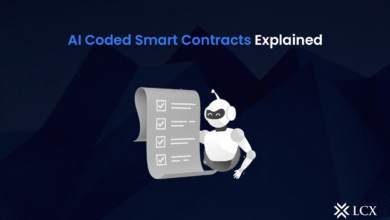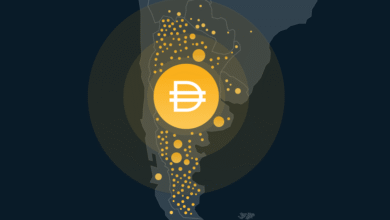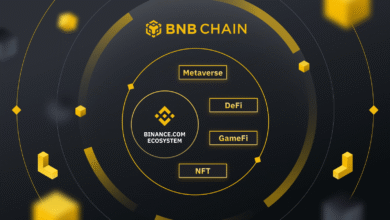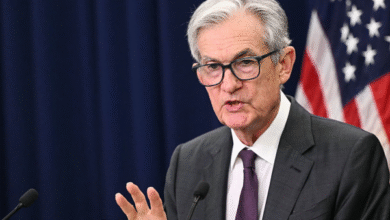Robinhood Stock Tokens: CEO Addresses OpenAI Concerns
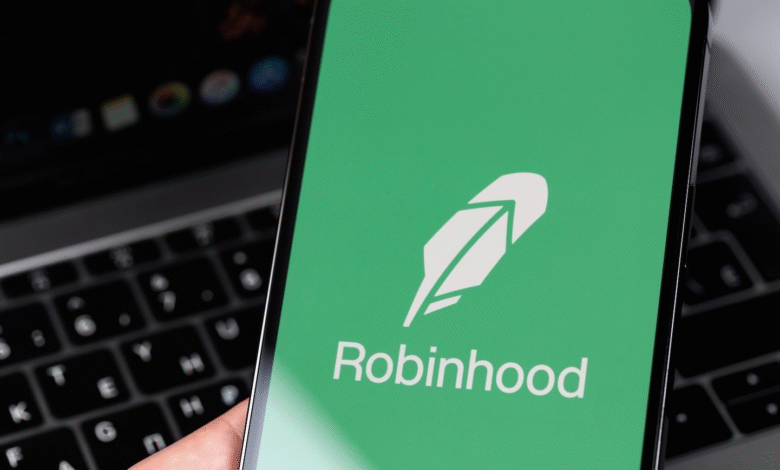
Robinhood stock tokens represent a groundbreaking approach to investing, allowing users to engage with assets that offer exposure to companies like OpenAI and SpaceX without traditional equity ownership. Despite the innovative structure, Robinhood CEO Vlad Tenev recently downplayed OpenAI’s concerns, clarifying that these tokenized shares do not equate to equity interests in the companies. The tokens, designed mainly for users in the European Union, provide a unique way for retail investors to navigate the complexities of private company investments. While regulatory scrutiny is expected, particularly in light of financial regulations surrounding such instruments, Tenev believes the opportunity to invest in transformative sectors like artificial intelligence is invaluable for consumers. Thus, Robinhood stock tokens aim to bridge the gap between conventional investing and emerging technologies, although the conversation around their legitimacy continues to evolve.
Robinhood’s innovative initiative known as stock tokens introduces a novel dimension to the landscape of digital investments. Essentially, these tokenized shares offer a mechanism for retail investors to engage with companies such as OpenAI and SpaceX, even without holding conventional equity. The concept has sparked a dialogue about the implications of financial regulators’ stance on these products, especially given the absence of direct equity representation. As Vlad Tenev, the CEO of Robinhood, engages with these challenges, the discourse surrounding the benefits and limitations of such investment vehicles continues to attract attention. In this light, understanding the unique structure of tokenized assets becomes essential for investors eager to explore new opportunities in rapidly-changing market environments.
Understanding Tokenized Shares in Financial Markets
Tokenized shares represent a modern approach to stock ownership by integrating digital technology with traditional financial instruments. Unlike conventional shares, which are tangible representations of ownership in a company, tokenized shares exist on a blockchain. This innovation allows for fractional ownership, lower barriers to entry for retail investors, and enhanced liquidity in markets that often face restrictions. Tokenization is particularly pertinent in the context of companies like OpenAI and SpaceX. By facilitating access via tokenized shares, Robinhood aims to broaden the investor base and foster inclusivity within the market.
Moreover, tokenized shares enable a new format for investment appealing to tech-savvy users interested in emerging industries like artificial intelligence. However, this innovative structure comes with its own set of complexities, especially regarding the regulatory landscape. Financial regulators are still grappling with adequately categorizing these instruments under existing laws, ensuring consumer protection while promoting innovation. As Vlad Tenev suggested, the juxtaposition of tokenized shares as non-equity instruments might confuse some investors, but ultimately offers a new avenue for engaging with high-potential companies.
Robinhood’s Stock Tokens and Regulatory Scrutiny
As Robinhood continues to introduce stock tokens for companies like OpenAI and SpaceX, it faces increased scrutiny from financial regulators. The Bank of Lithuania’s recent inquiries highlight the need for regulatory bodies to understand these new instruments clearly. With the transition from a non-profit to a for-profit model, OpenAI’s unique structure further complicates how these tokenized shares are perceived in terms of equity and ownership. This evolving landscape necessitates clear communication from companies about what these tokens represent to potential investors.
Vlad Tenev emphasized Robinhood’s commitment to transparency and cooperation with regulatory authorities. By addressing concerns from entities like the Bank of Lithuania, Robinhood aims to establish credibility in the market. Tenev’s assertion that the product offers valuable exposure to assets that users might otherwise find inaccessible resonates with a growing demand for innovative investment tools. As regulators assess the legality and compliance of these financial products, it remains crucial for Robinhood to provide clear and non-misleading information to secure investor confidence.
Vlad Tenev’s Vision for Modern Investing
Vlad Tenev envisions a modern investment landscape where traditional barriers are dismantled, allowing everyday investors to access high-value assets. By launching tokenized shares, Robinhood facilitates a shift towards inclusivity in financial markets, ensuring that retail investors are not sidelined by big institutional players. During a recent interview, Tenev remarked on the importance of creating opportunities for exposure to transformative companies like OpenAI, which could pave the way for unprecedented market dynamics. His leadership seeks to position Robinhood as a pioneer in democratizing finance.
Despite the complexities surrounding tokenized shares, Tenev remains optimistic about their role in the future of investing. He believes the transformative potential of AI and innovation warrants diverse investment opportunities, enabling users to participate in revolutionary industries. As a co-founder of Robinhood, Tenev’s vision embodies a blend of technological advancement and user-centric financial solutions, appealing to a new generation of investors eager for exposure to evolving companies.
Addressing OpenAI’s Concerns with Transparency
Following OpenAI’s concerns about tokenized stock structure, transparency emerged as a focal point for Robinhood. The tech company cautioned investors that Robinhood’s stock tokens do not represent true equity in OpenAI, sparking discussions on investor understanding. Tenev has consistently reiterated that the aim of these financial instruments is to provide access and not to mislead. By clarifying the nature of tokenized shares, Robinhood seeks to build trust with both regulators and investors, emphasizing its commitment to uphold stringent financial regulations.
Moreover, the dialogue between Robinhood and OpenAI illustrates the evolving relationship between technology companies and financial services. As the landscape shifts, both entities recognize the necessity for clear communication and rigorous scrutiny. Tenev’s readiness to engage with regulatory bodies reflects a proactive approach towards harmonizing innovation with the longer-term goal of market stability. By addressing these concerns transparently, Robinhood hopes to foster an environment of trust and understanding within the ever-changing financial sector.
The Impact of Financial Regulations on Stock Tokens
Financial regulations play a pivotal role in shaping the landscape for new investment products like Robinhood’s stock tokens. As financial authorities grapple with definitions of tokenized shares, the importance of compliance and clarity takes center stage. Regulation not only protects investors but also establishes a framework within which innovative products can thrive. Tenev has voiced Robinhood’s willingness to adapt and respond to regulatory inquiries, ensuring that the firm’s operations align with established financial laws while navigating the complexities of emerging technologies.
The relationship between financial innovation and regulation is crucial for fostering sustainable market practices. With increased scrutiny on the nature and structure of tokenized shares, firms like Robinhood are motivated to pursue comprehensive strategies that align with regulatory expectations. As the discussions around tokenized shares evolve, it is imperative for Robinhood to maintain compliance and transparency, ensuring that investors are well-informed about the nature of their investments. This balance will be essential for establishing Robinhood as a leader in responsible financial innovation.
The Future of Tokenized Investments
The evolution of tokenized investments marks a significant shift in the way individuals engage with financial markets. Companies like Robinhood are at the forefront of this transformative movement, constantly exploring methods to enhance user engagement through innovative products. With an increasing number of investors seeking exposure to tech-driven entities such as OpenAI, the development of tokenized shares serves to meet the rising demand. By providing easier access to private equity, Robinhood is redefining traditional investment opportunities and democratizing finance for a broader audience.
As tokenization continues to gain traction, it is crucial for firms to balance accessibility with investor education. The complexities surrounding assets that are not technically equity require a robust framework for potential investors to understand the implications of their ownership. The reliance on digital and blockchain technology in tokenized investments presents an exciting yet challenging landscape. As the market evolves, stakeholders must prioritize fostering trust, clarity, and compliance, creating a healthy environment for future innovations in finance.
Navigating the Intersection of Technology and Finance
The intersection of technology and finance is rapidly evolving, driven by innovations like tokenized shares. As Robinhood and other platforms introduce these modern investment vehicles, they bridge traditional finance with digital advancements. By leveraging blockchain technology, Robinhood aims to offer unprecedented access to investments in high-potential companies like OpenAI. This evolution speaks to a broader trend in which technology reshapes how individuals interact with financial markets.
However, navigating this intersection also comes with significant challenges. As noted in the discussions surrounding regulatory scrutiny, the financial landscape is continuously adapting to accommodate new technologies. Companies must work closely with regulators to ensure that innovations such as tokenized investments meet compliance standards while providing clear and accurate information to potential investors. Embracing this duality of innovation and regulation is essential for creating a sustainable future in finance.
The Role of Retail Investors in Modern Finance
Retail investors have increasingly become a pivotal part of the modern financial ecosystem. Companies like Robinhood have found success by empowering these individual investors with tools that were once the exclusive domain of institutional players. The growth of tokenized assets reflects a paradigm shift where everyday investors can access opportunities in innovative sectors, such as those represented by companies like OpenAI and SpaceX.
Vlad Tenev’s vision behind Robinhood is to democratize finance and eliminate barriers that have historically prevented retail investors from participating in high-value markets. By promoting products like tokenized shares, Robinhood encourages retail investors to explore new investment opportunities, thereby redefining their role in the financial landscape. As this trend continues, the collective voice of retail investors could play a significant role in influencing market dynamics and shaping the future of investing.
The Importance of Clear Communication in Investment Products
Clear communication is essential when introducing innovative investment products, such as tokenized shares. As demonstrated in the recent discussions between Robinhood and OpenAI, the complexity surrounding financial instruments necessitates that companies provide accessible information to investors. Transparency not only builds trust but also empowers consumers to make informed decisions about their investments. Tenev’s commitment to addressing concerns illustrates that Robinhood understands the need for clarity in a competitive market.
In an era where information is abundant, investors must have access to straightforward explanations of the products they engage with. Companies like Robinhood are responsible for ensuring that their communications are precise, comprehensive, and easy to understand. As the market for tokenized shares expands, maintaining clear dialogue regarding their structure and implications will be vital for fostering investor confidence and safeguarding industry integrity.
Frequently Asked Questions
What are Robinhood stock tokens and how do they relate to OpenAI?
Robinhood stock tokens are a form of tokenized shares that provide users exposure to companies like OpenAI without representing actual equity. They allow retail investors in the European Union to gain access to investments in private companies, despite not being classified as traditional equity instruments.
Why did OpenAI raise concerns about Robinhood’s stock tokens?
OpenAI expressed concerns because Robinhood’s stock tokens do not equate to actual equity ownership in OpenAI. They emphasized that any transfer of OpenAI equity requires their approval, which has not been granted to Robinhood for these tokenized shares.
How does Robinhood’s CEO Vlad Tenev defend the stock tokens amid regulatory scrutiny?
Vlad Tenev, Robinhood’s CEO, defends the stock tokens by stating that the lack of traditional equity status is not highly relevant, as the focus should be on providing retail customers with access to innovative investment opportunities, including in private companies like OpenAI.
What is the Bank of Lithuania’s position on Robinhood stock tokens?
The Bank of Lithuania is seeking clarifications regarding the structure of Robinhood’s stock tokens after OpenAI raised concerns. They indicated that they will assess the legality and compliance of these instruments once they receive detailed information from Robinhood.
How are Robinhood stock tokens structured to provide exposure to private companies?
Robinhood’s stock tokens are structured through its ownership stake in a special purpose vehicle, which enables retail investors to get exposure to assets like OpenAI, even though these assets are not publicly traded equity. This structure aims to facilitate investments in less liquid, private companies.
| Key Point | Details |
|---|---|
| Robinhood CEO’s Comments | Vlad Tenev defended the structure of Robinhood’s stock tokens for OpenAI and SpaceX, downplaying relevance of their non-equity status. |
| OpenAI’s Warning | OpenAI stated that Robinhood’s stock tokens do not represent equity and any transfer requires their approval. |
| Robinhood’s Explanation | Tokens are enabled by Robinhood’s stake in a special purpose vehicle, not actual equity. |
| Tenev’s Argument | Tenev argued the importance of providing retail customers exposure to these assets despite their private company status. |
| Regulatory Response | The Bank of Lithuania is seeking clarifications on Robinhood’s token structure before assessing legality. |
| Compliance Assurance | Tenev expressed confidence in Robinhood’s structure to meet regulatory scrutiny. |
Summary
Robinhood stock tokens are designed to provide users with exposure to private companies like OpenAI and SpaceX. The CEO, Vlad Tenev, acknowledged concerns regarding the nature of these tokens not being actual equity but emphasized their value in granting retail investors access to transformative technology assets. While OpenAI raised objections about the tokens’ representation, Robinhood believes in the importance of innovation and compliance with regulatory bodies, indicating a commitment to clear communication and accountability.

